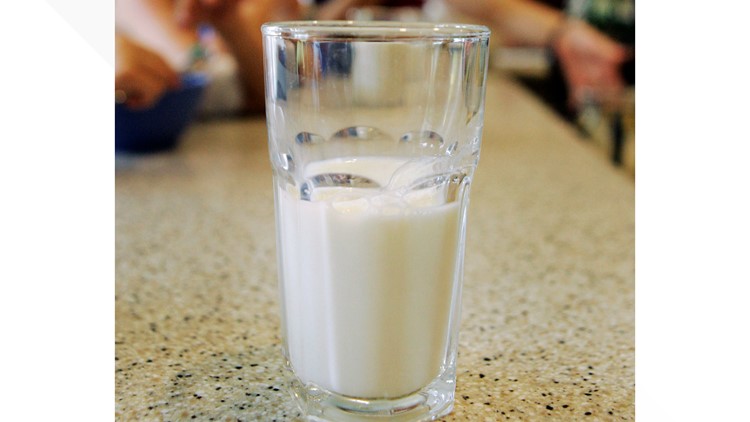PHOENIX — When you're feeling thirsty, as we often are living in the desert, which cold beverage should you reach for to quench your thirst?
You’re probably thinking water, but a 2016 St. Andrews University study that is getting some attention recently suggests milk may be more hydrating than water.
Researchers established a "beverage hydration index" based on how much people pee over four hours after drinking various beverages. The study shows drinking milk and orange juice resulted in less pee than drinking water, suggesting that drinking milk or orange juice will result in longer-term fluid retention.
But does that mean they're better for quenching your thirst? For local doctor Kristin Struble, it's tough to buy into the idea that dairy is the answer when your mouth gets dry.
We asked Dr. Struble about what the study's results mean.
"I'm always going to say water, water, water," Dr. Struble said.
"When you drink the cow's milk, you're going to get that mucus in the back of your throat. You're not necessarily going to feel quenched," she added.
The study details why nine drinks drown out water on the list ranking each beverage's hydration index. Researchers found the sugar, protein and fat in milk help retain fluid longer, so it might be a good option if you want to avoid inconvenient pee breaks.
But when it comes to pure hydration, Dr. Struble says you'll want to reach for the water first.
"If we eat more of a healthy diet and keep our garden in our gut, our microbial really healthy, we'll absorb calcium better, so the best thing to do is drink water," she said.
Again, water ranked 10th on the list, the data even suggesting diet soda and Pedialyte are proponents of longer-term hydration, but Dr. Struble says that's only true in certain cases.
"For someone that has an infection, definitely, you are replacing those electrolytes that you are losing to fast that your body can't keep up with," she said.
So we can verify that while other drinks can help you retain water over a certain time period, water is the way to go to avoid dehydration in the first place.



